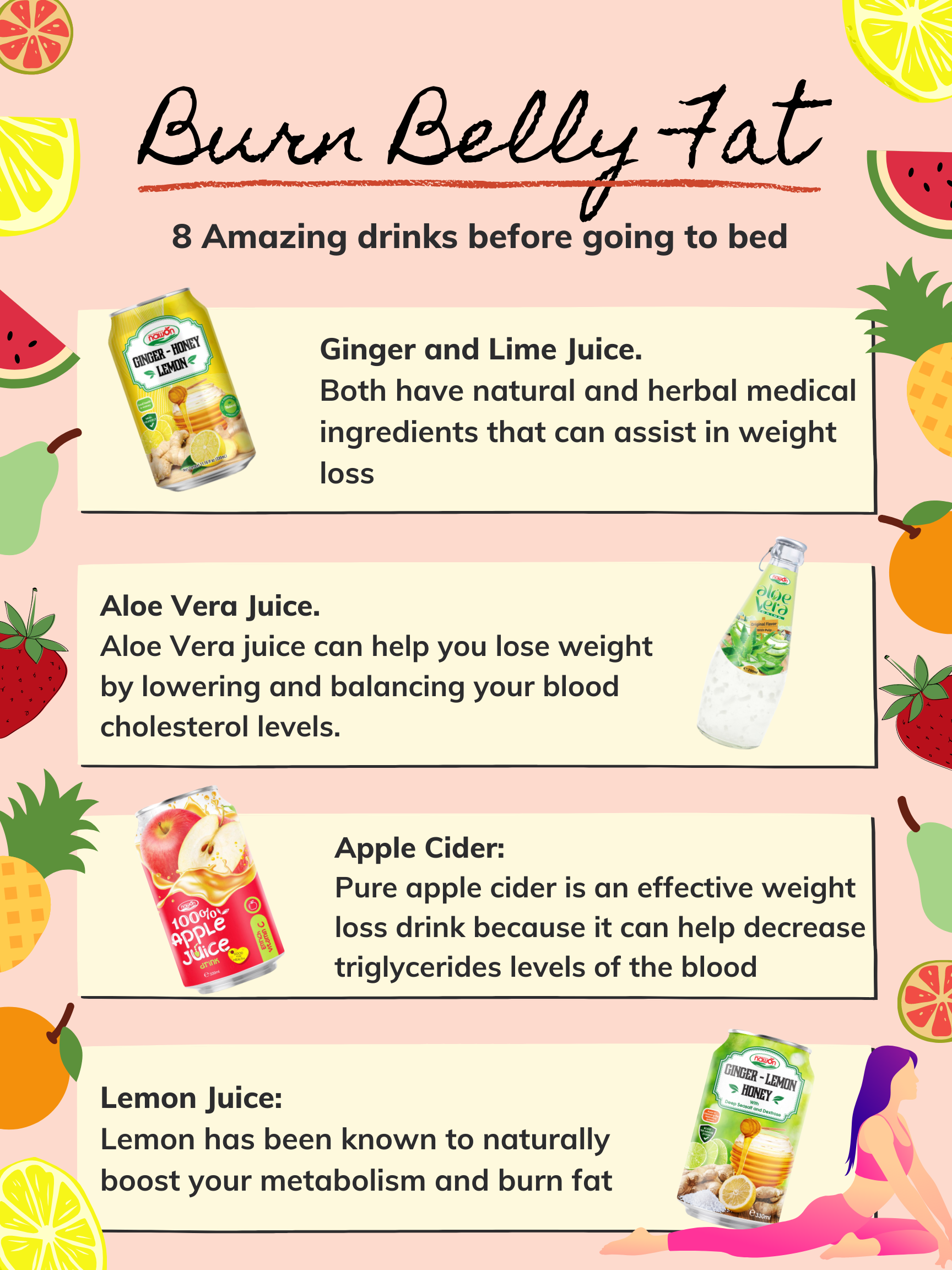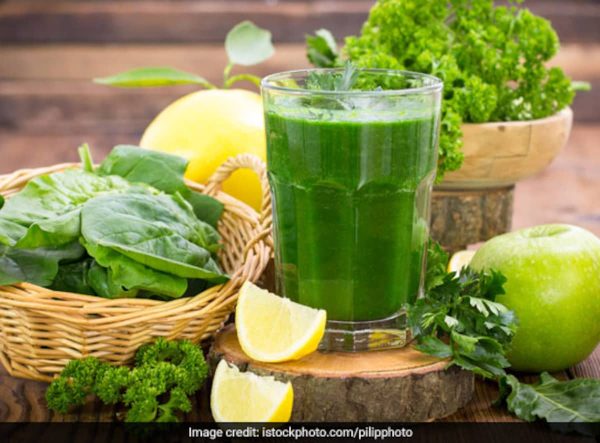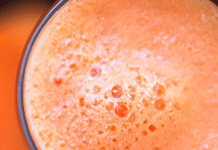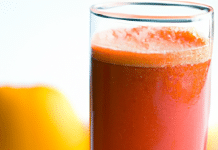Juicing has become increasingly popular for improving health and losing weight.
But can it specifically target stubborn belly fat? In this article, we explore the effectiveness of juicing as a method to shed those extra inches around the waistline.
With its nutrient-rich concoctions and potential for calorie restriction, juicing presents a promising solution for a flatter stomach. So, grab your glass, and let’s dive into the world of juicing and its possible impact on belly fat!
Review contents
Overview of Juicing for Weight Loss
Juicing has gained popularity as a weight loss method in recent years. It is a process that involves extracting the juice from fruits and vegetables, leaving behind the pulp.
Individuals hope to shed unwanted pounds by consuming these nutrient-packed juices, mainly targeting belly fat. Understanding the weight loss concept and how juicing can support this goal is essential in exploring this approach’s benefits and potential risks.
Understanding Juicing
Juicing means extracting the liquid from fruits and vegetables, leaving the solid pulp behind. This juice is rich in vitamins, minerals, and antioxidants. Juicing aims to give the body a concentrated dose of nutrients in an easily digestible and absorbable form.
Removing the fiber during the juicing process allows the body to quickly absorb the nutrients without breaking down the fiber first.
The Concept of Weight Loss
Weight loss results from creating a caloric deficit, which means consuming fewer calories than the body needs for daily activities and bodily functions. When the body is in a caloric deficit, it resorts to burning stored fat for energy, leading to weight loss. Belly fat, in particular, can be stubborn to lose, but maintaining a caloric deficit can reduce belly fat over time.
Juicing for Weight Loss
Juicing for weight loss involves incorporating freshly prepared juices into one’s daily diet to support the goal of shedding excess weight. These juices are low in calories and high in nutrients, making them an excellent choice for a weight loss regime. While juicing can be a tool for weight loss, it is essential to remember that it should be part of a balanced diet and not a substitute for whole foods.
Benefits of Juicing for Weight Loss
Nutrient-rich Diet
Juicing allows for consuming a wide variety of fruits and vegetables in a concentrated form. These juices contain essential vitamins, minerals, and antioxidants that support overall health and well-being. By incorporating nutrient-rich juices into our diet, we ensure that our bodies receive the necessary nutrients while reducing caloric intake.
Reduced Caloric Intake
One of the primary benefits of juicing for weight loss is reduced caloric intake. The fiber content is removed by extracting the juice from fruits and vegetables, resulting in a lower calorie count. Drinking juices instead of calorie-dense foods can help create a caloric deficit, leading to weight loss. However, it is essential to note that juices should not be the sole source of nutrition and should be complemented with a balanced diet.
Detoxification
Juicing is often associated with detoxification. While the body has natural detoxification mechanisms, consuming nutrient-rich juices can support these processes. Certain fruits and vegetables, such as lemons, beets, and leafy greens, are known for their detoxifying properties. Including these ingredients in our juices can aid in flushing out toxins from the body, promoting overall health and weight loss.
Increased Hydration
Proper hydration is essential for overall wellness and weight management. Juicing provides a flavorful and hydrating alternative to plain water. By including plenty of water-rich fruits and vegetables in our juices, we can increase our fluid intake, which is beneficial for digestion, metabolism, and the overall function of our bodies.
Promotes Healthy Digestion
The high water and fiber content in many fruits and vegetables used for juicing can promote healthy digestion. Adequate fiber intake is crucial for maintaining regular bowel movements and preventing constipation. Juices that contain fiber-rich ingredients, such as apples, pears, and leafy greens, can help support a healthy digestive system, which is essential for weight loss.
How Juicing Works for Belly Fat Loss
Caloric Deficit
The fundamental principle behind weight loss, including reducing belly fat, is creating a caloric deficit. Juicing can contribute to this deficit by providing low-calorie alternatives to high-calorie foods. By substituting high-calorie meals or snacks with nutrient-dense juices, individuals can reduce their overall caloric intake, making it easier to create a caloric deficit and promote belly fat loss over time.
Reduced Water Retention
Bloating and water retention can make the belly appear larger than it is. Juicing, particularly incorporating ingredients with diuretic properties, can help reduce water retention and alleviate bloating. Ingredients like cucumber, lemon, and watermelon can act as natural diuretics, helping to eliminate excess water from the body and promote a flatter stomach.
Decreased Inflammation
Inflammation in the body can contribute to belly fat accumulation. Certain fruits and vegetables used in juicing, such as berries, leafy greens, and ginger, possess anti-inflammatory properties. Incorporating these ingredients into our juices can help reduce inflammation, potentially aiding in belly fat loss.
Improved Digestive Health
A healthy digestive system is essential for weight loss, including reducing belly fat. Juices that contain fiber-rich fruits and vegetables can support healthy digestion and prevent digestive issues such as constipation. Ingredients like apples, bananas, and spinach can promote the growth of beneficial gut bacteria, which play a crucial role in digestion and overall gut health.
Types of Juices for Belly Fat Loss
Green Juices
Green juices are famous for their nutrient density and potential weight loss benefits. Typically made from leafy greens like spinach, kale, and cucumber, these juices provide good vitamins, minerals, and antioxidants. Green juices can aid in reducing belly fat by providing essential nutrients while keeping caloric intake in check.
Citrus Juices
Citrus fruits, such as oranges, lemons, and grapefruits, are known for their high vitamin C content and metabolism-boosting properties. Citrus juices can aid in belly fat loss by enhancing the body’s fat-burning abilities. Additionally, their refreshing taste adds a zing to juices and can make them a delightful part of a weight loss routine.
Spicy Juices
Spicy juices, made with ingredients like ginger, cayenne pepper, and turmeric, can benefit belly fat loss. These spices have thermogenic properties, temporarily increasing the body’s metabolism and calorie burning. Including spicy juices in a weight loss regime can add flavor and potentially aid in reducing belly fat.
Herbal Teas
While not technically juices, herbal teas can be a great addition to a weight loss plan. Herbal teas, such as dandelion root, green tea, and peppermint tea, can support digestion, boost metabolism, and aid detoxification. Enjoying herbal teas alongside juices can add variety to the diet and provide additional health benefits.
Essential Considerations Before Juicing for Weight Loss
Consultation with a Healthcare Professional
Before starting any weight loss program, including juicing, it is essential to consult with a healthcare professional. They can assess individual health conditions, provide personalized advice, and ensure that juicing is a safe and appropriate method for weight loss.
Balanced Nutritional Intake
While juicing can be a valuable addition to a weight loss plan, it should not replace a balanced diet. Consuming a variety of whole foods, including lean proteins, healthy fats, whole grains, and fruits and vegetables, is essential to ensure a well-rounded intake of essential nutrients.
Moderation and Portion Control
While juicing provides a concentrated dose of nutrients, practicing moderation and portion control is crucial. Juices should be consumed in reasonable quantities and not replace whole meals regularly. Balancing juice consumption with whole foods helps maintain a sustainable and balanced approach to weight loss.
Physical Activity and Exercise
Juicing can aid weight loss, but regular physical activity and exercise should be complemented. Engaging in activities that raise the heart rate and increase calorie expenditure can further enhance fat loss and help tone the body.
Incorporating cardiovascular exercise, strength training, and flexibility exercises into one’s routine can promote overall well-being and reduce belly fat.
Potential Risks and Side Effects of Juicing
Inadequate Nutrient Intake
While juicing can provide a concentrated dose of nutrients, it can also lead to inadequate nutrient intake. Juices may lack certain essential nutrients, such as protein, healthy fats, and dietary fiber, that are important for overall health. Maintaining a varied and balanced diet alongside juicing is essential to avoid nutrient deficiencies.
Blood Sugar Imbalances
Some juices, notably those made solely from fruits, can cause blood sugar imbalances. Fruit juices are high in natural sugars, which can cause a rapid spike in blood sugar levels. This can lead to energy crashes and cravings and hinder weight loss efforts. Balancing fruit juices with vegetables is advisable to mitigate the impact on blood sugar levels.
Slower Metabolism
A prolonged low-calorie intake, such as through juicing, can result in a slower metabolism. The body adapts to a reduced caloric intake by conserving energy, which can decrease metabolic rate. To counteract this, it is essential to gradually reintroduce solid foods and increase caloric intake once the weight loss goal has been achieved.
Muscle Loss
Juicing alone may not provide sufficient protein for building and maintaining lean muscle mass. When the body is in a caloric deficit, it may tap into muscle stores for energy, leading to muscle loss. To preserve muscle mass during weight loss, it is vital to include adequate protein from lean meats, legumes, and dairy products.
Digestive Issues
While juicing can support healthy digestion for many individuals, some may experience digestive issues. Consuming large quantities of juice can lead to diarrhea, bloating, and discomfort. It is essential to listen to our bodies and adjust the quantity and ingredients of our juices as needed to avoid digestive problems.
Organ Strain
Excessive consumption of certain juices, mainly those high in oxalates, can strain the kidneys and other organs. Spinach, beets, and rhubarb, among others, are high in oxalates, and their consumption should be moderated. It is essential to consult with a healthcare professional to ensure that juicing does not exert undue stress on the body.
Allergic Reactions
Juicing involves combining various fruits, vegetables, and herbs, which may trigger allergic reactions in some individuals. Common allergens like strawberries, citrus fruits, and certain herbs can cause allergic symptoms such as itching, swelling, or difficulty breathing. Awareness of known allergies and avoiding ingredients triggering adverse reactions is essential.
Tips for Effective Belly Fat Loss through Juicing
Include Fiber in Your Juices
While juicing removes the fiber content, including a small portion of fiber in our juices is beneficial. Adding a tablespoon of chia seeds, ground flaxseeds, or psyllium husk can provide fiber that supports healthy digestion and helps keep us feeling full.
Mixture of Fruits and Vegetables
To maximize nutrient intake and minimize sugar content, we aim to strike a balance between fruits and vegetables in our juices. Focus on incorporating low-sugar fruits like berries, green apples, and pears alongside various leafy greens, cucumber, and celery for a well-rounded juice blend.
Experiment with Different Ingredients
Don’t be afraid to get creative and experiment with different ingredients. Trying out new fruits, vegetables, and herbs can help diversify the nutrient profile of our juices and keep the experience enjoyable. Incorporating ingredients like ginger, turmeric, and mint can add flavor and potential health benefits to our juicing routine.
Drink Freshly Prepared Juices
To optimize nutrient intake, consuming juices immediately after preparation is best. Freshly prepared juices retain the maximum amount of nutrients and enzymes. If storing is necessary, use an airtight container and refrigerate for a short period to minimize nutrient loss.
Monitor and Adjust Caloric Intake
While juicing can contribute to a caloric deficit, monitoring and adjusting caloric intake to ensure it aligns with individual weight loss goals is essential. Consulting with a healthcare professional or a registered dietitian can help determine the appropriate caloric range for healthy and sustainable weight loss.
Stay Hydrated
In addition to drinking juices, it is essential to stay hydrated by consuming plain water throughout the day. Proper hydration supports overall bodily functions and aids in weight loss by maintaining optimal metabolism.
Incorporate Other Healthy Habits
Juicing can be a valuable tool in belly fat loss, but it should not be the sole focus of a weight loss journey. Incorporating other healthy habits such as regular exercise, stress management techniques, and adequate sleep can enhance the overall effectiveness of weight loss efforts.
Success Stories and Testimonials
Real People’s Experiences
Many individuals have shared their success stories and experiences of belly fat loss through juicing. These testimonials highlight the positive impact of juicing on weight loss goals when combined with a balanced diet and lifestyle changes. It is important to remember that each person’s journey is unique, and what works for one may not work for all.
Best Juice Recipes for Belly Fat Loss
Finding suitable juice recipes that suit individual preferences and weight loss goals can enhance the overall juicing experience. As a starting point, recipes like the “Green Goddess,” which includes spinach, cucumber, green apple, and lemon, or the “Zesty Citrus Blast,” which combines grapefruit, orange, and ginger, can be popular choices for belly fat loss.
Frequently Asked Questions (FAQs)
Can juicing alone help you lose belly fat?
While juicing can contribute to weight loss and belly fat reduction, it is not a standalone solution. Juicing should be combined with a balanced diet, portion control, regular exercise, and other healthy habits to achieve long-term and sustainable belly fat loss.
How long does it take to see results?
The timeframe for seeing results from juicing for belly fat loss can vary depending on factors such as individual metabolism, body composition, and adherence to a balanced diet and exercise routine. It is essential to focus on sustainable lifestyle changes rather than quick fixes.
Is it safe to rely solely on juicing for nutrition?
Relying solely on juicing for nutrition can lead to inadequate nutrient intake and potential health risks. Juicing should be complemented with a balanced diet that includes a variety of whole foods to ensure the body receives the necessary nutrients for optimal health.
Can I drink juiced fruits only?
While fruits offer essential vitamins and minerals, consuming juiced fruits can only result in high sugar intake and imbalances in blood sugar. It is best to strike a balance between fruits and vegetables in our juices to minimize sugar content and provide a broader range of nutrients.
Can I replace meals with juices?
Replacing meals with juices can lead to inadequate calorie and nutrient intake. Balancing and incorporating whole foods alongside juices is essential to ensure a well-rounded diet. Juices can be a healthy addition to a meal but should not be the sole source of nutrition.
Can everyone benefit from juicing?
While juicing can provide numerous health benefits, it is essential to consider individual health conditions, allergies, and dietary needs. Consulting with a healthcare professional is recommended to assess whether juicing is suitable and safe for each person’s unique circumstances.
Conclusion
Juicing can be a valuable tool for individuals seeking to lose belly fat and promote overall weight loss. Incorporating nutrient-rich juices into a balanced diet and lifestyle can create a caloric deficit, reduce water retention, decrease inflammation, and improve digestive health.
However, it is essential to be mindful of risks and considerations associated with juicing, such as inadequate nutrient intake, imbalances in blood sugar, and slower metabolism. By following the tips and guidelines and seeking professional advice, individuals can maximize the benefits of juicing while ensuring a safe and sustainable approach to weight loss.





































